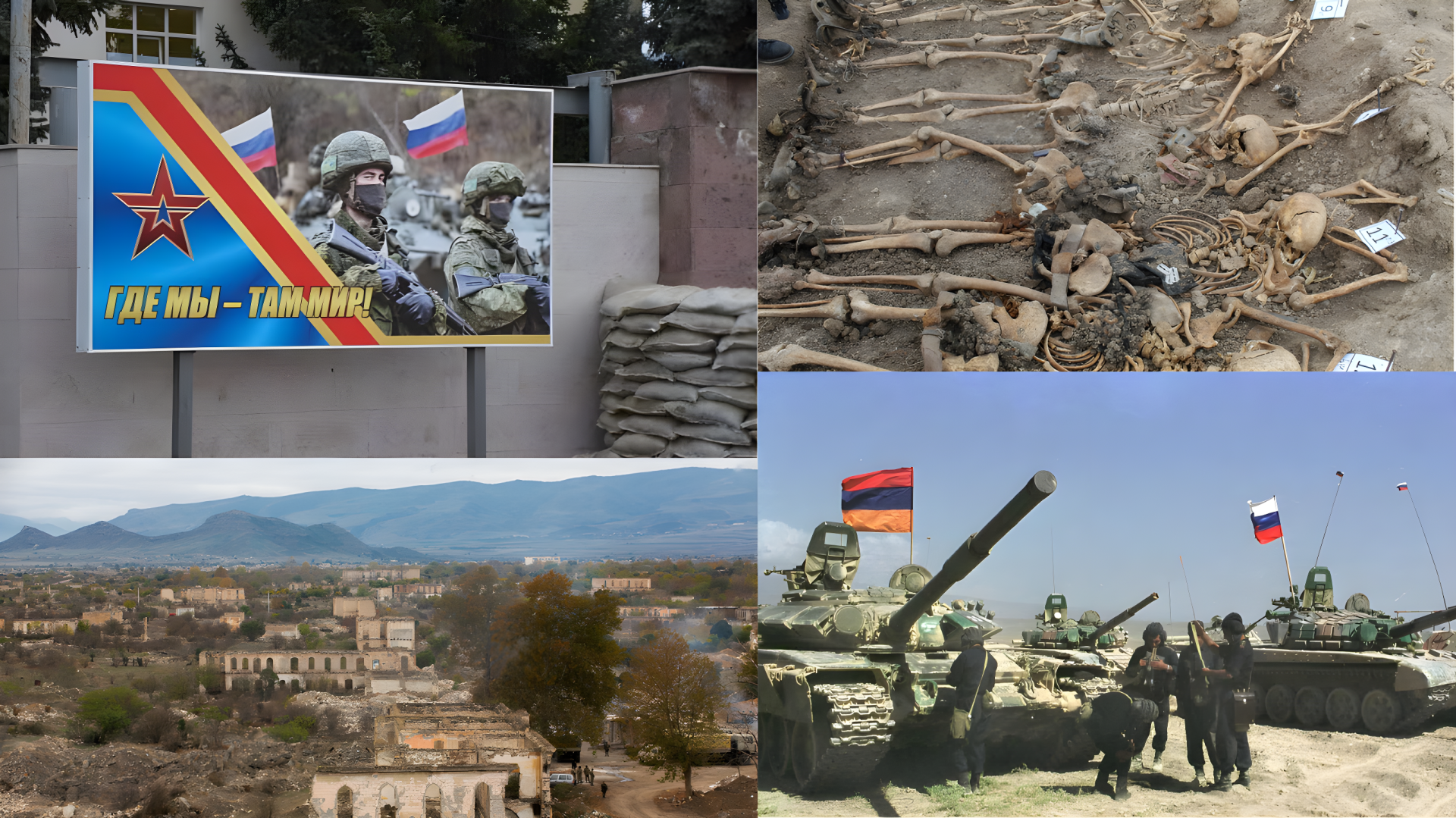"The new understanding of peace is that if we say the Republic of Armenia has sovereign territories under Azerbaijan's control, then we must also recognize that Azerbaijan has sovereign territories under our control. This issue should be settled through mutual border delimitation. Peace cannot be achieved unless the Garabagh issue is resolved. In fact, some forces use the Garabagh issue as a tool to hinder Armenia's independence, sovereignty, and statehood development.”
These words were spoken by Armenian Prime Minister Nikol Pashinyan in his address to the people on Monday.
Sometimes they say that good comes from evil. There is no doubt that we are witnesses to this truth. The speech of the Armenian Prime Minister also suggests that he is now understanding several issues that he has not noticed for many years. After Azerbaijan's triumph in the Second Garabagh War and subsequent victory in anti-terrorist measures, he has come to realize the realities, even though he was defeated. This also indicates that a line has been drawn over Russia's hateful policy. Pashinyan states that their (Garabagh Armenians') rights are solely Armenia's responsibility. In this way, he exposes Russia, which has been the main root cause and driver of the Garabagh problem throughout history.
For nearly three decades, Armenia occupied Azerbaijani territories with extensive Russian military and political backing. Multiple channels facilitated Moscow’s steady supply of arms and equipment to Yerevan:
-
Free provision of weapons and equipment through military aid;
-
Shared use of a unified air defense system;
-
CIS-based military assistance programs;
-
Credit-based supplies of weapons and military hardware;
-
Direct purchases from Armenia’s military budget.
Between 2010 and 2019 alone, Armenia paid $5 billion for Russian weapons, much of it financed through favorable Russian loans. In addition, Russia provided three major packages of free military aid between 1992 and 2012, worth billions of dollars, which included tanks, S-300 missile systems, and advanced artillery—forming the backbone of Armenia’s military capacity.
During the 44-day war in 2020, Moscow’s assistance was openly acknowledged by both Russian and Armenian officials. President Vladimir Putin declared on Rossiya-24 (VGTRK):
“I assure you that the Russian Federation has fully fulfilled all its obligations, both within the framework of multilateral and bilateral commitments, including in the area of military-technical cooperation. The Armenian leadership, including Prime Minister Nikol Pashinyan, has repeatedly expressed gratitude, emphasizing that Russia has fully met its obligations as committed.”
He further added that Armenia was not abandoned:
“We recognized the role of Türkiye and its armed forces, acknowledging that maintaining a balance of power is essential even in such serious situations. I assure you that Armenia did not feel abandoned or forgotten; Russia took all necessary steps to prevent that.”
Similarly, Pashinyan himself thanked Russia’s Defense Minister Sergei Shoigu during a meeting in Yerevan:
“I would like to emphasize that during the war, we always felt the support of the Russian Federation, as well as from the President of Russia, the Prime Minister of Russia, and your personal support. For this, I would like to thank you.”
Covert Russian support during the War
During the Second Garabagh War, the Russian Federation took several measures to support its ally. It continuously provided the Armenian armed forces with weapons and ammunition, created favorable conditions for assistance, and facilitated the Armenian lobby's efforts to withdraw weapons and volunteers from Russia.
For these purposes, Russian government structures collaborated with the Armenian lobby and established the following operations as quickly as possible:
- Delivery of military cargo to Armenia via military transport aircraft of the Russian Federation, with seven documented instances;
- Transfer of weapons and ammunition from the warehouses of the 102nd Russian base located in Armenia;
- Transportation of military cargo and volunteers from Mineralnye Vody airport by Armenian military aircraft and civil aviation, with over 20 recorded flights.
But the most interesting thing was that the Russian military, back in the day was performing some combat missions in the interests of the Armenian armed forces. In particular, they carried out the following actions:
- The activities of several servicemen of the 102nd Russian base within the framework of the joint air defense system. To prevent threats from air attack weapons, reconnaissance of part of the Azerbaijani airspace and the combat zone was carried out with the transmission of information to the command posts of Armenia;
- Delivery to the combat zone and use by the Russian military of the "Pole-21M" electronic warfare system. The complex carried out electronic countermeasures against Azerbaijani unmanned aerial vehicles near the city of Shusha and in the Lachin corridor in late October and early November of 2020.
Moreover, it is noteworthy to note that in the past month, there has been an intensive transport of weapons, equipment, and ammunition to the afore-mentioned 102nd Russian military base. Reports indicate that several Russian military cargo planes are landing at the base daily, and this influx shows no signs of slowing down. Armenian publications have also reported on this situation. Well, some don't need to become an expert to realise what Russia is trying to do with that...
It is undeniable that Russia’s alliance with Armenia and their shared membership in a military bloc has always been used as justification for Moscow’s support in any form. Yet, with the emergence of new realities, we have also witnessed how Russia’s interests have shifted. As the saying goes in Azerbaijani, “when there were apricots in the garden, there was also a greeting; once the apricots were gone, so was the greeting.”
Today, Pashinyan’s rhetoric signals that Armenia’s leadership is being forced to confront new geopolitical realities. His statements suggest a reluctant acknowledgement that Armenia can no longer lean on Russia’s patronage as it once did, while also admitting that peace with Azerbaijan must be grounded in mutual recognition of sovereignty and final border delimitation.

